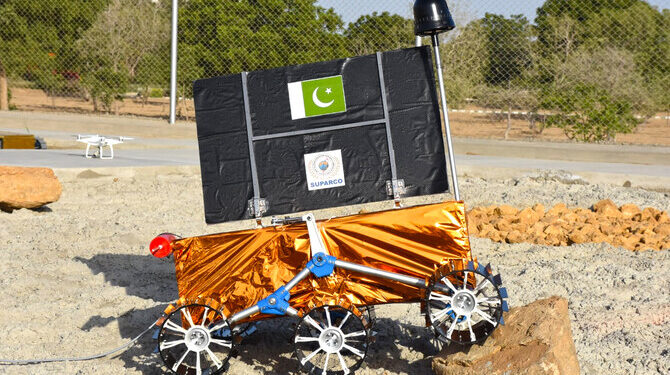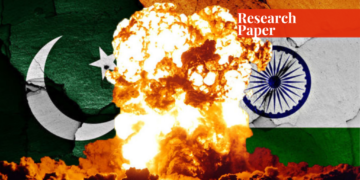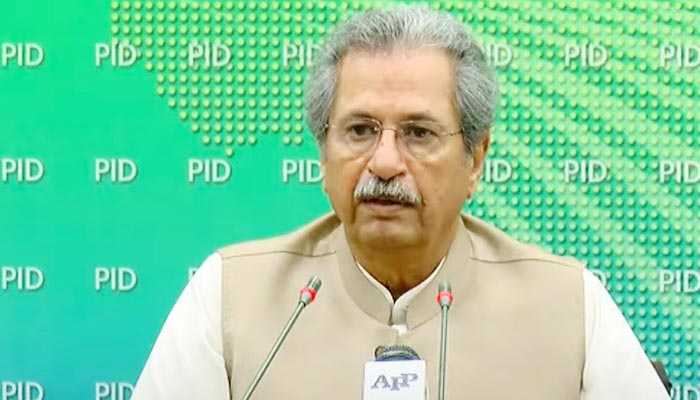BEIJING: Pakistan is set to make history as its first indigenous lunar rover will be part of China’s Chang’e-8 mission, scheduled for launch in 2028.
The Space and Upper Atmosphere Research Commission (SUPARCO) and the China National Space Administration (CNSA) signed a Memorandum of Understanding (MoU) to solidify their collaboration in deep space exploration. The agreement was signed in the presence of Pakistani President Asif Ali Zardari and Chinese President Xi Jinping.
A Milestone in Pakistan’s Space Program
Pakistan’s involvement in the Chang’e-8 mission is a significant step forward for its national space program. The mission, led by CNSA, aims to conduct:
? Lunar surface mapping
? In-situ scientific exploration
? Technology verification
? Resource utilization
Pakistan’s lunar rover will operate at the Moon’s south pole, a region of scientific and strategic interest due to its potential water ice reserves and suitability for future human exploration.
Cutting-Edge Research and Innovation
? The rover will carry advanced scientific payloads developed by SUPARCO, along with an internationally designed payload created through Chinese-European collaboration.
? It will conduct lunar soil analysis, radiation studies, and plasma property assessments to support long-term lunar operations.
? The mission will help map the lunar surface and explore the potential for sustainable human presence on the Moon.
SUPARCO’s scientists and engineers have independently designed, manufactured, assembled, and tested the rover, showcasing Pakistan’s growing expertise in space technology. Once deployed, Pakistani scientists will control and operate the rover from Earth.
Strengthening Pakistan-China Space Ties
This collaboration highlights Pakistan and China’s strategic partnership and shared vision for advancing space exploration. It also reinforces Pakistan’s commitment to global scientific research and its role in the International Lunar Research Station (ILRS) initiative.
The Chang’e-8 mission is a stepping stone for future lunar colonization efforts, and Pakistan’s participation marks its entry into international deep-space exploration.

















